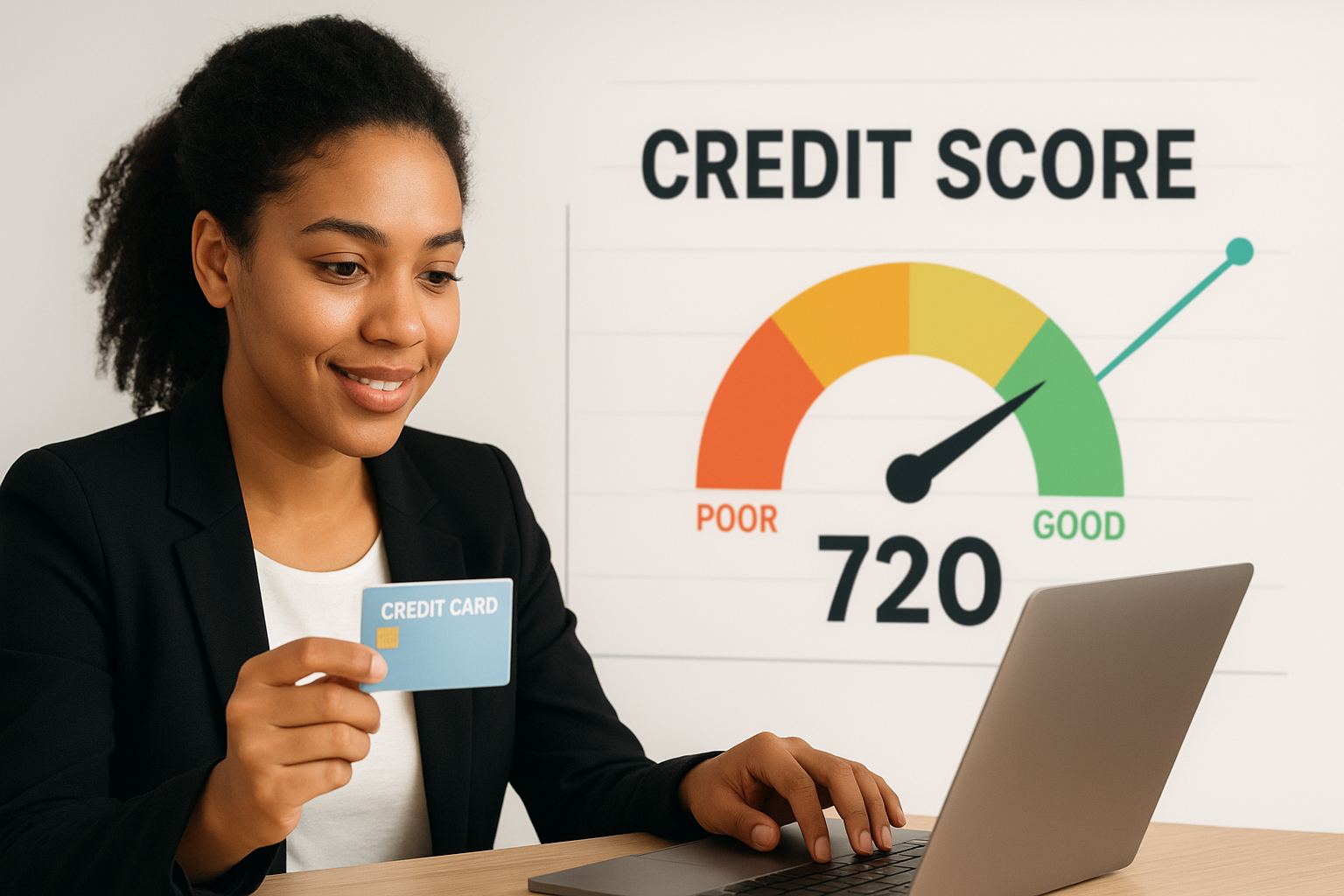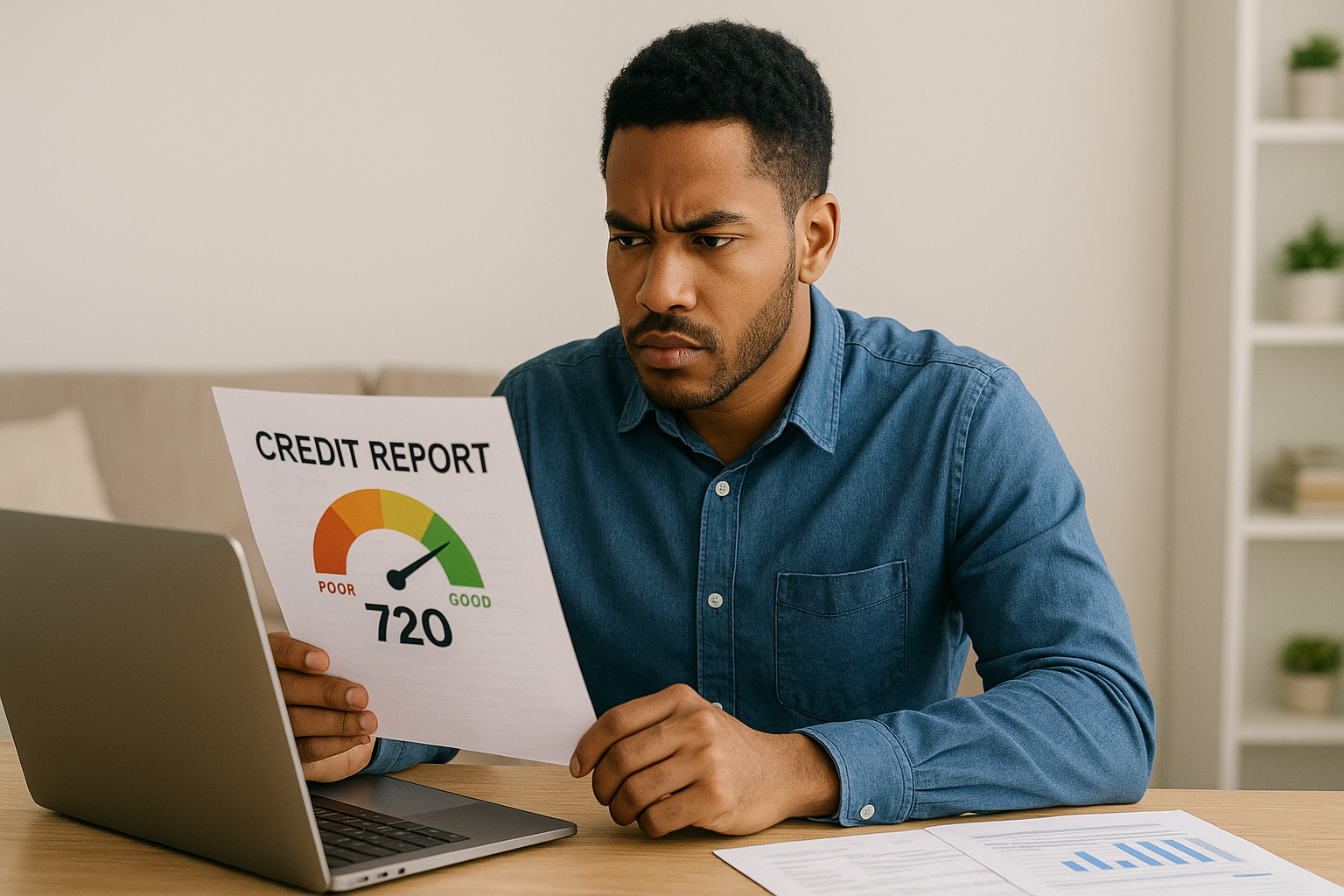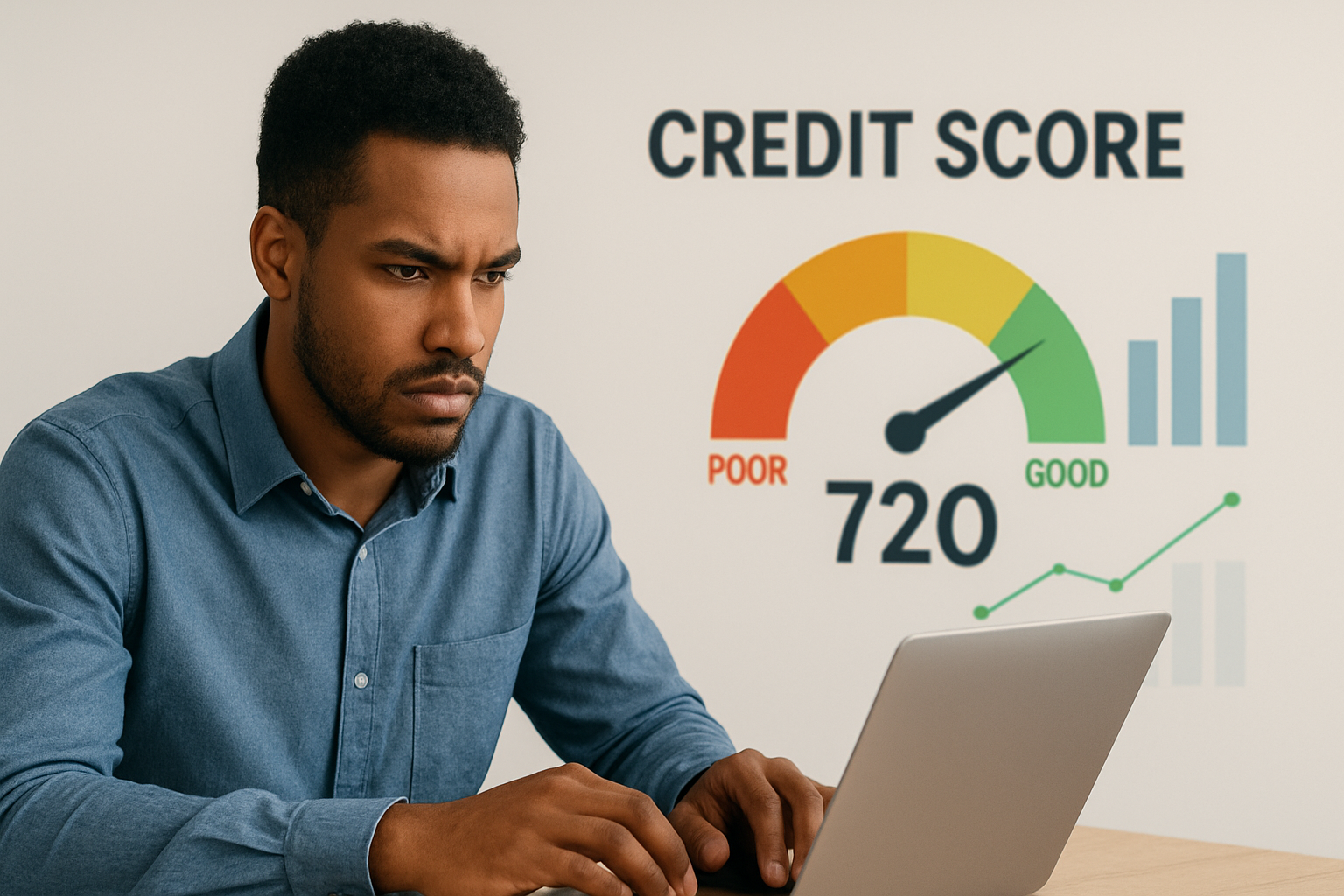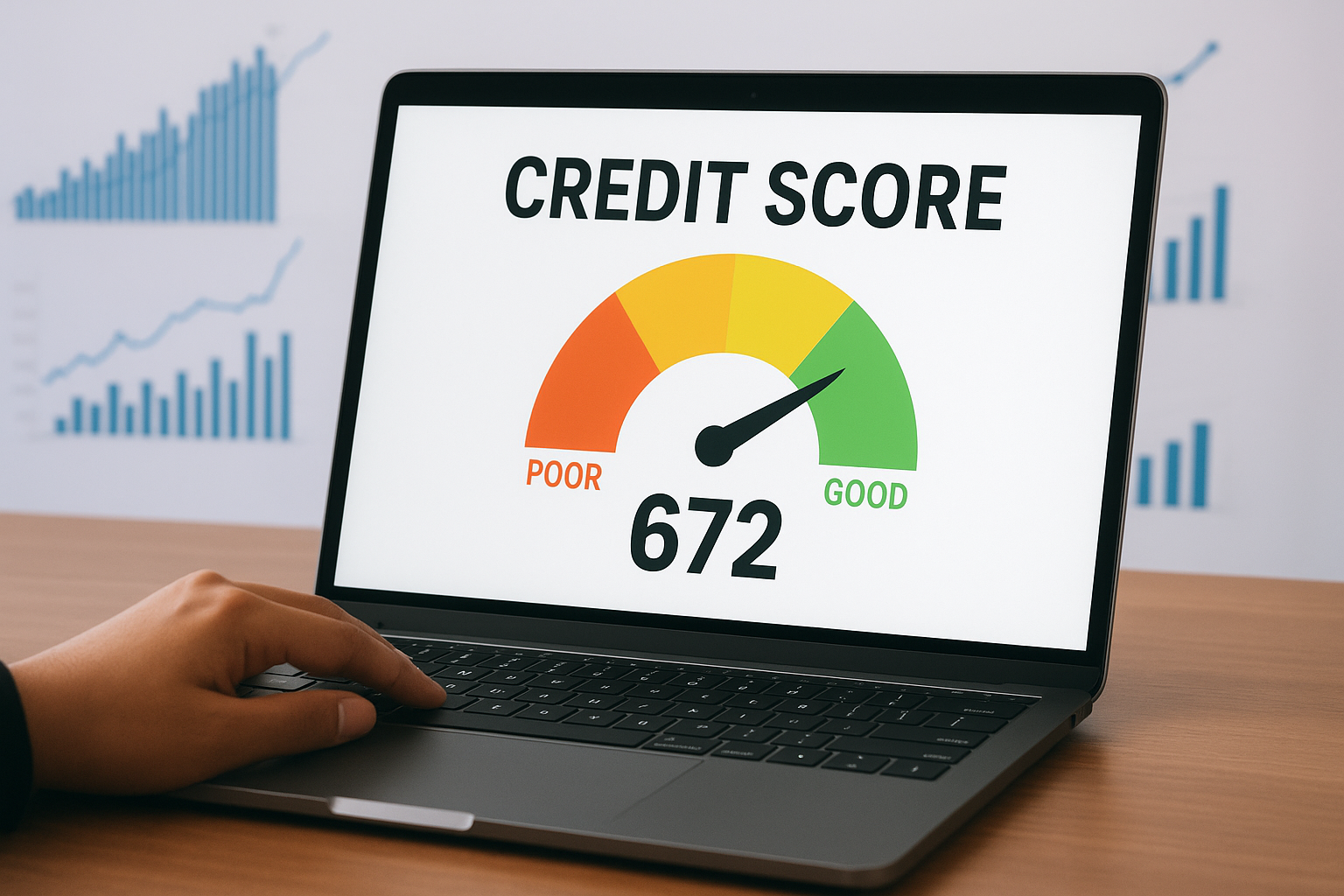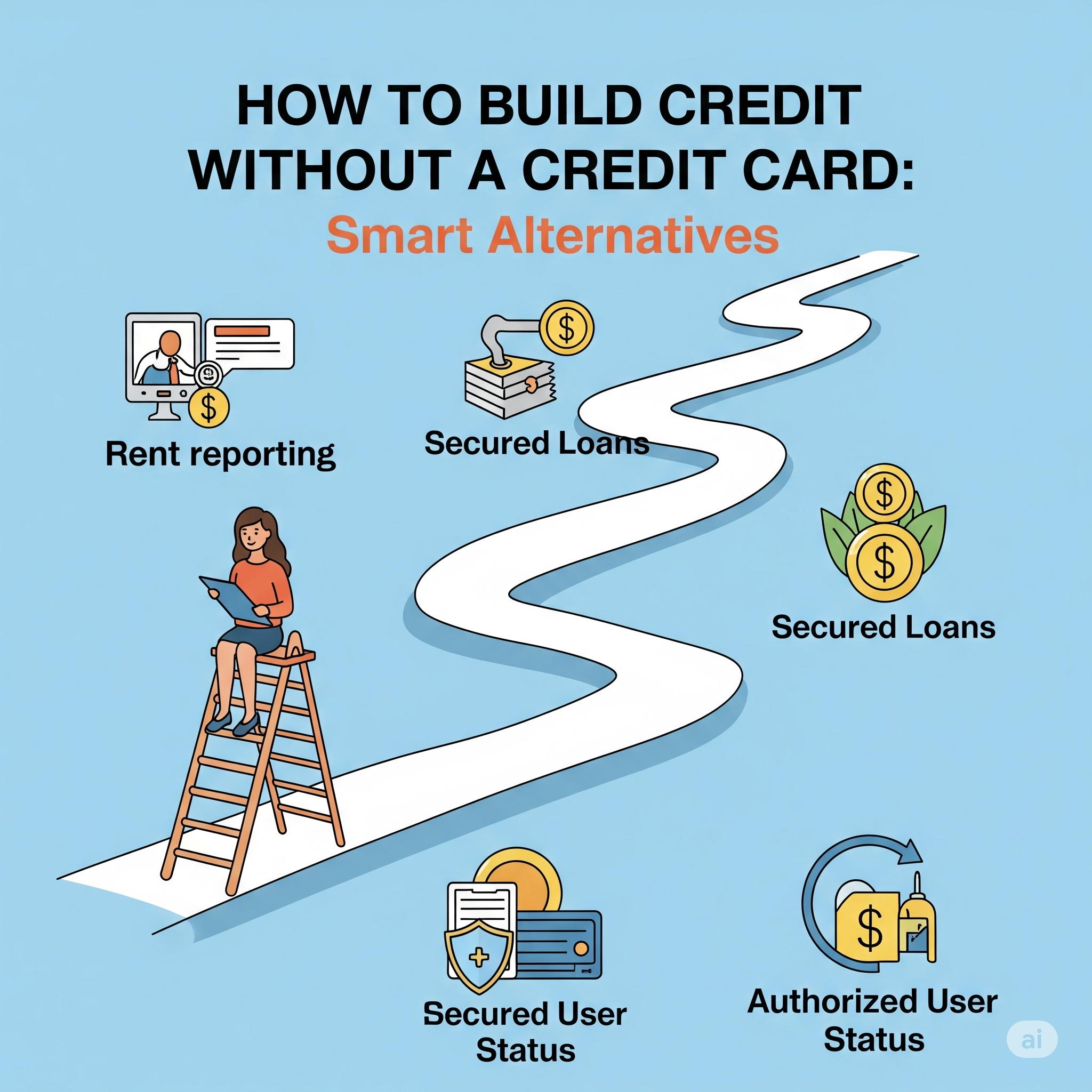Introduction
How to build credit from scratch is a question many young adults, immigrants, or people re-establishing their finances often ask. A credit score isn’t just a number — it’s your ticket to affordable loans, housing opportunities, and even certain jobs. But what if you’ve never had credit before?
The truth is, everyone starts somewhere. While it may feel intimidating to begin with no history, building credit from scratch is absolutely possible. By taking strategic steps and practicing smart financial habits, you can establish a strong foundation that will serve you for life.
This article explores nine proven methods on how to build credit from scratch, giving you the tools to start your financial journey with confidence.
Why Learning How to Build Credit from Scratch Matters
If you’re starting with no credit history, lenders know nothing about your ability to manage debt. That lack of information can make it harder to borrow, even if you’ve been financially responsible in other areas of life.
Key Benefits of Building Credit Early:
-
Easier Loan Approval: Lenders will be more willing to work with you.
-
Lower Interest Rates: Strong credit saves thousands over time.
-
Housing Opportunities: Landlords check credit to assess risk.
-
Career Prospects: Some employers factor in credit reports.
Simply put, learning how to build credit from scratch sets you up for long-term stability.
1. Open a Secured Credit Card
One of the easiest ways to learn how to build credit from scratch is with a secured credit card. These cards require a deposit, usually equal to your credit line.
Why It Works:
-
Your on-time payments are reported to the three major credit bureaus.
-
It creates an instant track record of responsible usage.
-
After consistent use, you may graduate to an unsecured card.
💡 Tip: Use it for small purchases like groceries and pay in full each month.
2. Become an Authorized User
If a trusted friend or family member has strong credit, ask to be added as an authorized user. This is one of the fastest ways to practice how to build credit from scratch.
Benefits:
-
Their long history and good habits reflect on your report.
-
You don’t need to apply for your own card.
-
It helps establish credit length early.
Just be sure the primary cardholder is financially responsible — their mistakes could hurt your score.
3. Apply for a Credit-Builder Loan
Credit-builder loans are small installment loans offered by community banks and credit unions. They’re specifically designed for people learning how to build credit from scratch.
How It Works:
-
You borrow a small amount ($300–$1,000).
-
The money is held in an account while you make monthly payments.
-
Once paid off, the funds are released to you — and your positive history is reported.
This creates a solid credit trail without requiring prior history.
4. Report Rent and Utility Payments
Many people don’t know that rent and utility payments can sometimes count toward building credit. If you’re learning how to build credit from scratch, this is a great way to use existing bills to your advantage.
Options:
-
Services like Experian Boost allow you to report phone, utility, and streaming bills.
-
Some landlords use platforms that report rent payments to credit bureaus.
This ensures your everyday responsibility works in your favor.
5. Keep Your Utilization Low
When you first learn how to build credit from scratch, it’s easy to overuse new credit. But your utilization ratio (how much credit you use vs. your limit) is crucial.
Best Practices:
-
Keep balances below 30% of your limit — 10% is even better.
-
If your card limit is $500, stay under $150.
-
Pay balances early, not just at the due date.
This shows lenders you can manage credit responsibly.
6. Always Pay on Time
Nothing builds (or destroys) credit faster than payment history. When learning how to build credit from scratch, the most important thing you can do is never miss a payment.
Tips to Stay on Track:
-
Automate payments where possible.
-
Set calendar alerts for due dates.
-
At the very least, pay the minimum.
Six months of on-time payments can establish strong momentum.
7. Limit Hard Inquiries
Each time you apply for credit, a hard inquiry is added to your report. Too many applications in a short period make you appear risky.
Smart Strategy:
-
Apply sparingly — only for accounts that help you build credit.
-
Research approval odds before submitting applications.
Part of how to build credit from scratch is being selective with opportunities.
8. Build a Diverse Credit Mix Over Time
A healthy mix of revolving credit (cards) and installment credit (loans) helps your score. While you don’t need everything at once, diversity is a long-term part of how to build credit from scratch.
Examples:
-
Start with a secured card.
-
Add a credit-builder loan.
-
Later, expand to auto or student loans if needed.
This mix shows lenders you can handle multiple account types.
9. Monitor Your Progress
Finally, the most overlooked part of learning how to build credit from scratch is monitoring your progress.
Steps to Track Growth:
-
Use free tools like Credit Karma or bank apps.
-
Check your credit reports yearly at AnnualCreditReport.com.
-
Watch for errors and disputes.
Celebrating small wins along the way will keep you motivated.
Mistakes to Avoid When Building Credit from Scratch
-
Applying for too many cards at once.
-
Closing your first accounts — keep them open to build history.
-
Ignoring small bills — late payments count, no matter the amount.
-
Falling for “quick fix” scams.
Remember: consistency is the foundation of credit.
Internal Links (activewithus)
DoFollow External Links
Conclusion
Starting with no credit may seem daunting, but by following these nine steps, you’ll master how to build credit from scratch and create a strong financial foundation. Whether it’s through secured cards, credit-builder loans, or simply paying bills on time, your consistent habits will shape your future opportunities.
The earlier you start, the stronger your credit history will be when you need it most.
